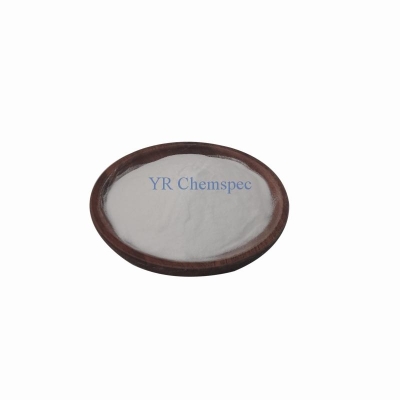Experts from Zhejiang University urgently conserve the extremely dangerous plant Coptis chinensis
-
Last Update: 2018-01-12
-
Source: Internet
-
Author: User
Search more information of high quality chemicals, good prices and reliable suppliers, visit
www.echemi.com
Dr Li pan photographed the wild Coptis chinensis in the deep mountain of Fenshuiling National Nature Reserve, Jinping County, Honghe Prefecture, Yunnan Province All the pictures in this paper are Zhejiang online pictures Zhejiang Online Jan 11 news in the laboratory of the Institute of ecology, School of life sciences, Zhejiang University In these two days, there was a precious "guest" from Yunnan, namely, the national rare and endangered wild plant Coptis chinensis They have been illegally dug before, and now experts from Zhejiang University are using tissue culture technology to conserve and expand the propagation of seedlings, which is expected to be returned to the field in the future Coptis pentaphylla is a species of Coptis Coptis plants all contain berberine Chinese medicine attaches great importance to its heat clearing and detoxifying effect Therefore, wild plants have been over mined for a long time At present, most of them are endangered Coptis quinquefolius is more special because it is also a very small population plant IUCN ranks its endangered level as "extremely dangerous", next to "wild extinction" Dr Li pan, from the school of life sciences of Zhejiang University, felt cordial and pitiful to the current batch of five split Coptis sent to Hangzhou from Yunnan Province a few days ago The last time he saw them was in September 2017, deep in the mountains of the watershed National Nature Reserve in Jinping County, Honghe Prefecture, Yunnan Province "In the misty mountains all the year round, we can see these five lobed Coptis growing on the soil on the rock surface near the top of the mountain Only in this mountain range on the border between China and Vietnam can we find wild Coptis chinensis Li Pan said Li pan and other experts from Zhejiang University participated in the special investigation of basic scientific and technological resources of the Ministry of science and technology of the people's Republic of China They were responsible for investigating the wild plants with very small populations in Yunnan, Guangxi and Guizhou, and collecting germplasm resources "Tiny population, as the name implies, is a species with a small population and a very narrow distribution They are seriously disturbed by human beings and are in danger of extinction at any time." According to Li pan, there are also many small populations of wild plants in Zhejiang, such as the famous podocaine Carpinus, only one of which is called "the only child on earth" "At the watershed, we walked for 7 hours in the rain with the comrades in the reserve We did not know how many falls we had and found about 20 five lobed Coptis in all parts of the mountain." Li Pan said that the appointment was made at that time, and the investigation will be carried out again in March next year when the flowers bloom Results two days ago, director Yu Zhiyong of the reserve called Li pan and surprised him In a local market, Mr Yu saw a 70 year old old herb farmer selling a newly dug medicinal herb "One eye recognized the five crack Coptis which we had investigated before," he immediately reported to the forest police Law enforcement officers collected more than 50 illegally dug Coptis chinensis plants Fortunately, the plants were basically well preserved After carefully wrapping the roots with moss, they immediately sent them to Zhejiang University to carry out the next conservation work Mr Jiang Weimei shows the five lobed Coptis in tissue culture How to breed the next generation? Zhejiang University experts proposed to use tissue culture technology: take a small half leaf, a small bud, use the medium, in the sealed glass can induce the plant to differentiate into other tissues, and eventually grow into a complete plant According to Jiang Weimei, an expert in tissue culture technology from the school of life sciences of Zhejiang University, there are not many available materials for tissue culture of Coptis chinensis, and there are a lot of processes to be explored independently in various links such as disinfection and sterilization, medium formulation, etc At present, the first batch of tissue culture has begun Why is it important to save and protect these rare species? Academician Li Zhensheng, a famous wheat breeding expert in China, once said: a species can determine the economic lifeline of a country, and a gene can affect the rise and fall of a nation A species may contain great value that can be applied by us in the future Once extinct, human beings will lose the opportunity to discover this value forever even when they are not aware of it "To protect biodiversity is to preserve more possibilities for our own future." Li Pan said.
This article is an English version of an article which is originally in the Chinese language on echemi.com and is provided for information purposes only.
This website makes no representation or warranty of any kind, either expressed or implied, as to the accuracy, completeness ownership or reliability of
the article or any translations thereof. If you have any concerns or complaints relating to the article, please send an email, providing a detailed
description of the concern or complaint, to
service@echemi.com. A staff member will contact you within 5 working days. Once verified, infringing content
will be removed immediately.







